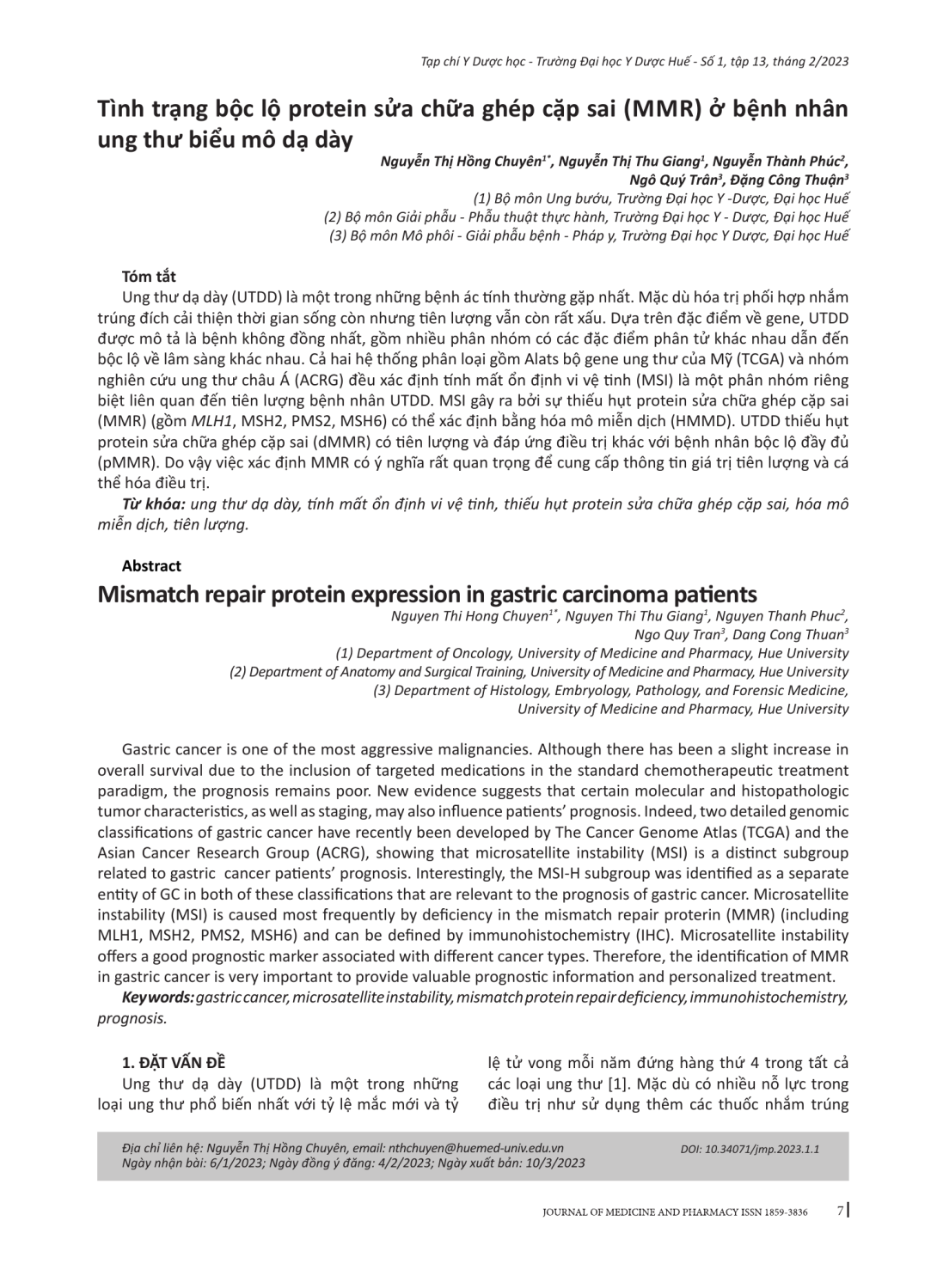
Ung thư dạ dày (UTDD) là một trong những bệnh ác tính thường gặp nhất. Mặc dù hóa trị phối hợp nhắm trúng đích cải thiện thời gian sống còn nhưng tiên lượng vẫn còn rất xấu. Dựa trên đặc điểm về gene, UTDD được mô tả là bệnh không đồng nhất, gồm nhiều phân nhóm có các đặc điểm phân tử khác nhau dẫn đến bộc lộ về lâm sàng khác nhau. Cả hai hệ thống phân loại gồm Alats bộ gene ung thư của Mỹ (TCGA) và nhóm nghiên cứu ung thư châu Á (ACRG) đều xác định tính mất ổn định vi vệ tinh (MSI) là một phân nhóm riêng biệt liên quan đến tiên lượng bệnh nhân UTDD. MSI gây ra bởi sự thiếu hụt protein sửa chữa ghép cặp sai (MMR) (gồm MLH1, MSH2, PMS2, MSH6) có thể xác định bằng hóa mô miễn dịch (HMMD). UTDD thiếu hụt protein sửa chữa ghép cặp sai (dMMR) có tiên lượng và đáp ứng điều trị khác với bệnh nhân bộc lộ đầy đủ (pMMR). Do vậy việc xác định MMR có ý nghĩa rất quan trọng để cung cấp thông tin giá trị tiên lượng và cá thể hóa điều trị.
Gastric cancer is one of the most aggressive malignancies. Although there has been a slight increase in overall survival due to the inclusion of targeted medications in the standard chemotherapeutic treatment paradigm, the prognosis remains poor. New evidence suggests that certain molecular and histopathologic tumor characteristics, as well as staging, may also influence patients’ prognosis. Indeed, two detailed genomic classifications of gastric cancer have recently been developed by The Cancer Genome Atlas (TCGA) and the Asian Cancer Research Group (ACRG), showing that microsatellite instability (MSI) is a distinct subgroup related to gastric cancer patients’ prognosis. Interestingly, the MSI-H subgroup was identified as a separate entity of GC in both of these classifications that are relevant to the prognosis of gastric cancer. Microsatellite instability (MSI) is caused most frequently by deficiency in the mismatch repair proterin (MMR) (including MLH1, MSH2, PMS2, MSH6) and can be defined by immunohistochemistry (IHC). Microsatellite instability offers a good prognostic marker associated with different cancer types. Therefore, the identification of MMR in gastric cancer is very important to provide valuable prognostic information and personalized treatment.
- Đăng nhập để gửi ý kiến
